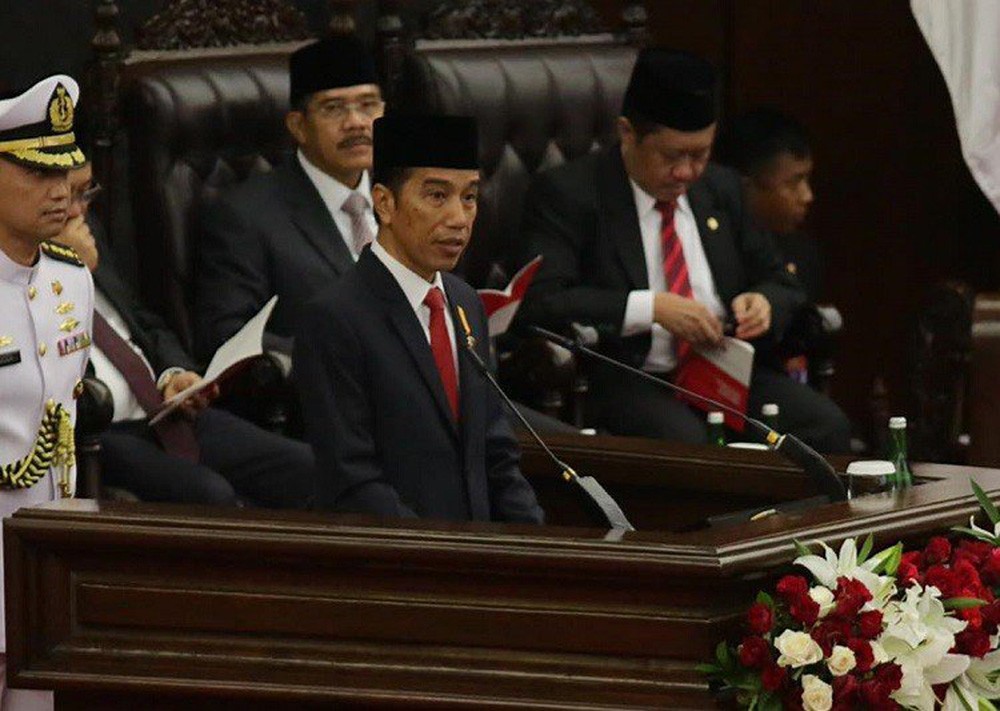Popular Reads
Top Results
Can't find what you're looking for?
View all search resultsPopular Reads
Top Results
Can't find what you're looking for?
View all search resultsMPR set to reinstate GBHN
Change text size
Gift Premium Articles
to Anyone
T
he People’s Consultative Assembly (MPR) is on track to return to its glory days as the country’s most powerful legislative body, as it will soon start deliberations over the fifth amendment of the Constitution, which will reinstate the now-defunct state policy guidelines (GBHN).
The amendment is expected to restore the authority of the assembly, the 692 members of which consist of 560 House of Representatives members and 132 Regional Representatives Council (DPD) members, to set the direction of national development policy.
The GBHN will serve as a guideline for long-term development plans for the country and it will be mandatory for the President to implement it. The proposal for the amendment was made by the Indonesian Democratic Party of Struggle (PDI-P), which now controls the largest number of seats at the House, 109 out of 560.
To make it mandatory for the president to implement the GBHN, the MPR assessment body, which drafted the amendment together with scores of legal experts from 48 universities across the country, proposed a number of sanctions to be applied should the president fail to act on the guidelines.
An early proposal of the amendment stipulated that the MPR could demand accountability from the president based on a motion made by the House that deems the president as having failed to uphold the guidelines. Another form of punishment would be the House would refuse to approve the president’s state budget plan (RAPBN).
As the third option for punishment, the MPR would issue a recommendation that the president is not worthy of re-election, given his refusal to implement the GBHN.
Most political parties at the House prefer the third option.
MPR Deputy Speaker Mahyudin, a Golkar Party politician, said that since the president and vice president were directly elected by the people, it was the electorate that should mete out punishment, not the MPR.
“There should be punishment somehow, or the GBHN will only be a paper tiger. We should only allow the people to impose punishment and the MPR can only recommend they not vote for the incumbent in the next election,” Mahyudin said.
The PDI-P signaled that the punishment would not be binding or be forcefully implemented. “The GBHN aims to direct the government, not to put it on a short leash. It will only give all state institutions a direction for their programs and responsibilities,” said PDI-P secretary-general Ahmad Basarah, adding that currently, without any guidelines, the state institutions tended to follow their own agendas.
The planned amendment, however, would also face tough challenges as the DPD has demanded that it be given a role in political decision-making over legislation and more authority in budgeting and supervisory functions, a proposal that would rankle lawmakers at the House.
DPD member John Pieris, who represent Maluku province, said that the council only played a marginal role in the legislative process, as it could only give non-binding opinions and recommendations.
“There should be no reason to reject our demands. We are the embodiment of regional aspirations, but all this time we have had no power,” Pieris said.
PDI-P lawmaker Tubagus Hasanuddin shot down the DPD’s proposal for a more inclusive legislative process.
Tubagus, who is also the deputy head of the MPR assessment agency, said the MPR should focus first on the GBHN issue and set aside other provisions.
“The House and the DPD already have their own functions. No one should ask for more power for now. We should focus on how to bring back the GBHN,” Hasanuddin said.
Constitutional law expert Feri Amsari said there was no need to award the DPD a greater role in the legislative process as it has actually been included in law-making on matters related to regional autonomy.
The Constitutional Court has twice, in 2015 and in 2013, ruled in favor of DPD speaker Irman Gusman, who filed a petition against the Legislative Institution Law (MD3), and allowed the council to play a role in the legislative process regarding regional autonomy and budgeting on matters related to the regions.
“It appears that they did not read the Constitutional Court ruling, which has given the DPD a place in the law-making process,” Feri said.
In March, PDI-P chairperson Megawati Soekarnoputri proposed that the MPR, which was a powerful legislative institution under the New Order regime, should have its power returned so the country had a reference point to determine what to do and where to go in the long term.
________________________________
To receive comprehensive and earlier access to The Jakarta Post print edition, please subscribe to our epaper through iOS' iTunes, Android's Google Play, Blackberry World or Microsoft's Windows Store. Subscription includes free daily editions of The Nation, The Star Malaysia, the Philippine Daily Inquirer and Asia News.
For print subscription, please contact our call center at (+6221) 5360014 or subscription@thejakartapost.com










